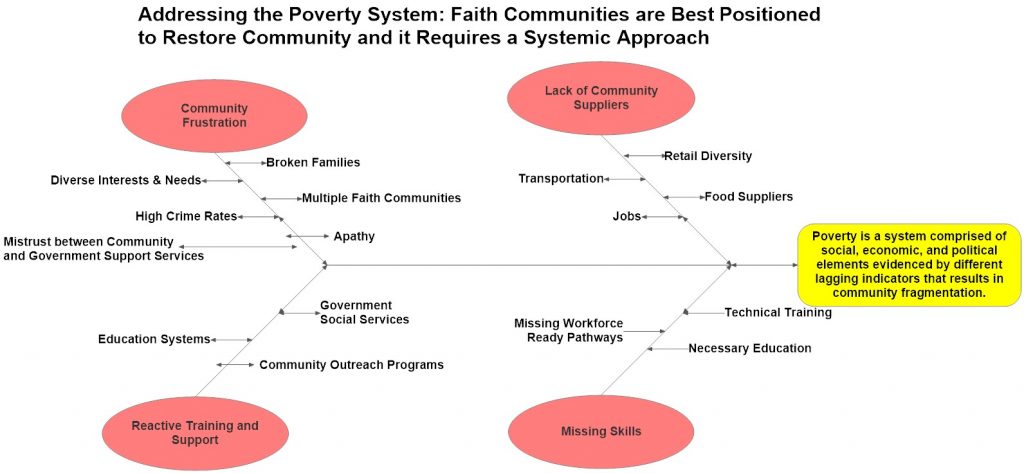Poverty is a System
Merriam Webster roughly defines a system as a regularly interacting or interdependent group of items forming a unified whole. Examples may include a group of interacting bodies under the influence of related forces such as a gravitational system. Another example is an assemblage of substances that is in, or tends to equilibrium such as a thermodynamic system.
When one considers the concept of poverty, it is important to view poverty in the context of a system of interrelated relationships. Lagging indicators of an impoverished community are lack of needed resources, missing skills, frustrated communities and reactive programs and support structures. In order to eradicate poverty, one needs to work holistically. A football analogy is that if they aren’t going to give you the pass, take the run. The point is to take what the defense gives you.

Needs Statement
Market holes are opportunities! Lack of skilled labor provides an opportunity for training programs. Barriers to entering the farming market include equipment costs and transportation needs. People are migrating into cities more than ever in the history of civilization. Global and local food security is becoming a recognized concern. Existing programs and market drivers are in place to support buy fresh local produce. Creating industry around community need is an opportunity. Tulsa already has models in place that show this concept works!
What if –
- Urban farming works as a live laboratory to teach STEM?
- Local food production lowers worker’s cost of living while increasing family income?
- Human labor reduces the food production expense of transportation and the capital expenses of heavy machines and equipment?
- A local farm within the city provides high quality fresh local food to reduce transportation costs?
Would you do it?
What next?
Call me if you are involved in local agriculture and need a legal resource. I look forward to hearing from you.
